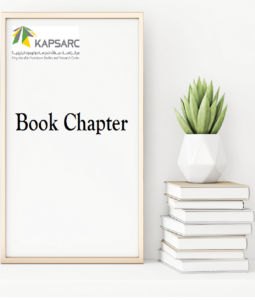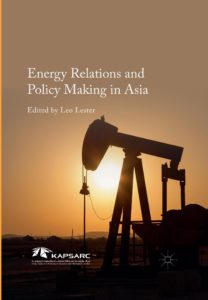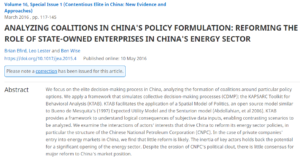
Energy Relations and Policy Making in Asia: Conclusion
One Belt One Road. It has been the Chinese government’s slogan of the last few years, and it may come to dominate the middle decades of the twenty-first century as the infrastructure and investment projects now being touted are realised, and the trade links between China and the world are significantly enhanced. These may be the four words that the world most closely associates with Xi Jinping, who came to power as China’s President in late 2012. © The Editor(s) (if applicable) and The Author(s) 2016. https://www.scopus.com/inward/record.uri?eid=2-s2.0-85018068233&doi=10.1007%2f978-981-10-1094-1_16&partnerID=40&md5=b0253707a9a718d29eed5a96e32eb2be
1st يناير 2016

